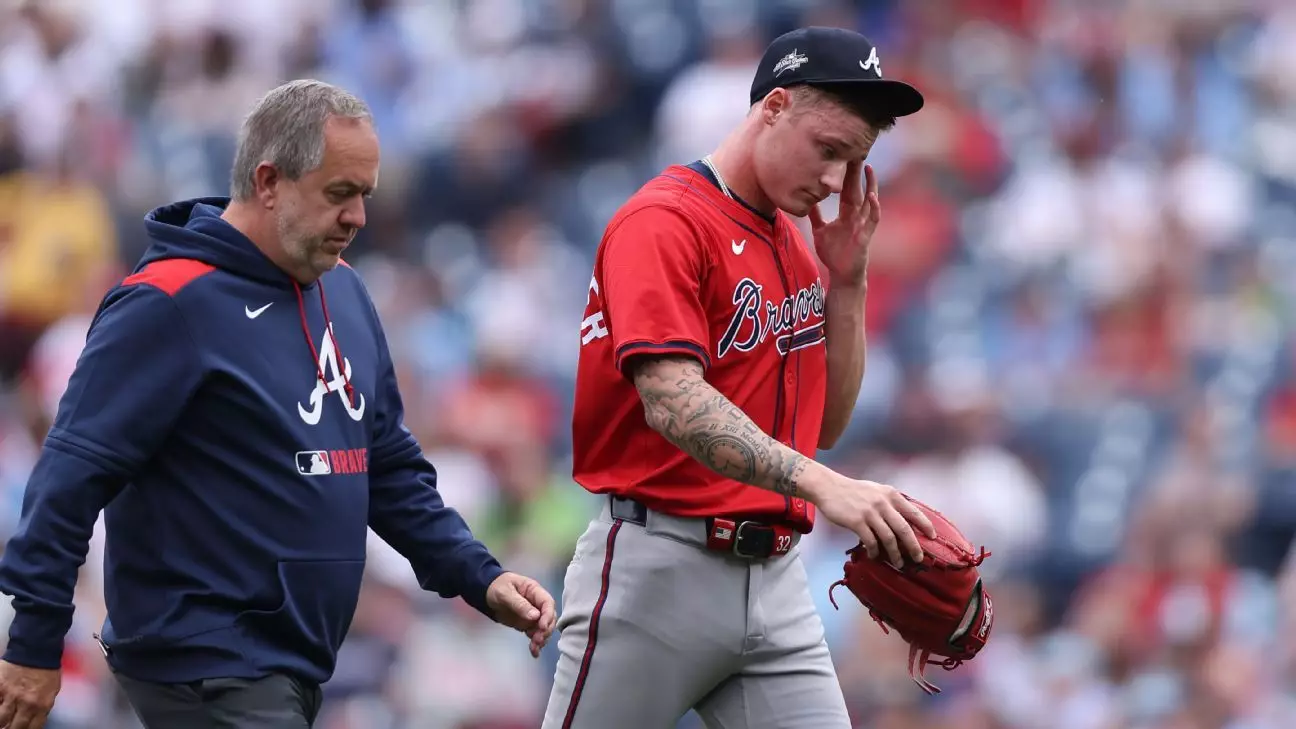The recent news from the Atlanta Braves highlights the harsh realities of professional sports, specifically in baseball, where injuries can drastically alter a team’s trajectory. AJ Smith-Shawver’s unfortunate need for Tommy John surgery has sent shockwaves through the Braves organization. This surgery, essential for repairing the ulnar collateral ligament in his throwing elbow, puts an abrupt end to a promising season for the rookie pitcher. His stats may seem modest with a 3.86 ERA and 42 strikeouts over 44.1 innings, but his talent was clear to those who watched him pitch. At just 22 years old, Smith-Shawver’s long-term potential is undeniable, yet the journey to recovery will be long and challenging, filled with uncertainty.
Manager Brian Snitker’s optimistic tone in the face of this setback is commendable. He believes that this injury could merely be an obstacle in a thriving career. However, one cannot ignore the mental toll that such setbacks can inflict on young athletes. For Smith-Shawver, the road ahead will not only test his physical resilience but also his mental fortitude. It raises a question about the athlete’s support systems and how they can effectively assist during these arduous periods.
Kimbrel’s Exit: A Bitter End to a Legendary Tenure
Adding to the narrative of struggle is Craig Kimbrel, who, after a storied career with the Braves, has decided to explore free agency following his designation for assignment. Once a dominant force revered for his electric fastball and unmatched closing abilities, Kimbrel’s recent performance casts a shadow over his illustrious past. Despite being a nine-time All-Star and holding the franchise record for saves, Kimbrel has faced significant challenges over the past few seasons.
His adventure back to Atlanta seemed like a scripted redemption arc, yet it turned sour after just one game, reflecting a harsh reality for athletes that fame and past performance do not always guarantee future success. It’s hard not to feel a pang of disappointment for Kimbrel, who was seeking to reclaim his place in the league. Yet, the ebb and flow of professional sports demand not just skill, but also adaptability. At 37, Kimbrel finds himself at a crossroads. The question that lingers is whether his storied past can serve as a launching pad for a rejuvenated career, or if this marks the end of an era.
The Atlanta Braves: Navigating a Rough Patch
The Atlanta Braves find themselves ensnared in a seven-game losing streak—a predicament that may push them to reassess their resources and strategies as they navigate the choppy waters of this season. The loss of Smith-Shawver and Kimbrel puts additional weight on their shoulders, challenging both the team’s depth and their management strategies. While injuries are an inevitable part of sports, an organization’s ability to adapt and rebuild is often what defines its success over time.
The franchise’s response will be critical. They must weigh their immediate needs against future aspirations, thinking strategically about how to weather this storm and possibly emerge stronger. Relying on younger players to step up amidst these changes may not only provide relief but could also cultivate a new wave of talent for the Braves. As fans, we must acknowledge the cyclical nature of sports—celebrating peaks while learning to navigate through the valleys.
In this challenging landscape, the Braves are at a crossroads, facing injuries and role changes that will test their resolve. How they manage these transitions may well determine their chances moving forward in the competitive world of Major League Baseball.

